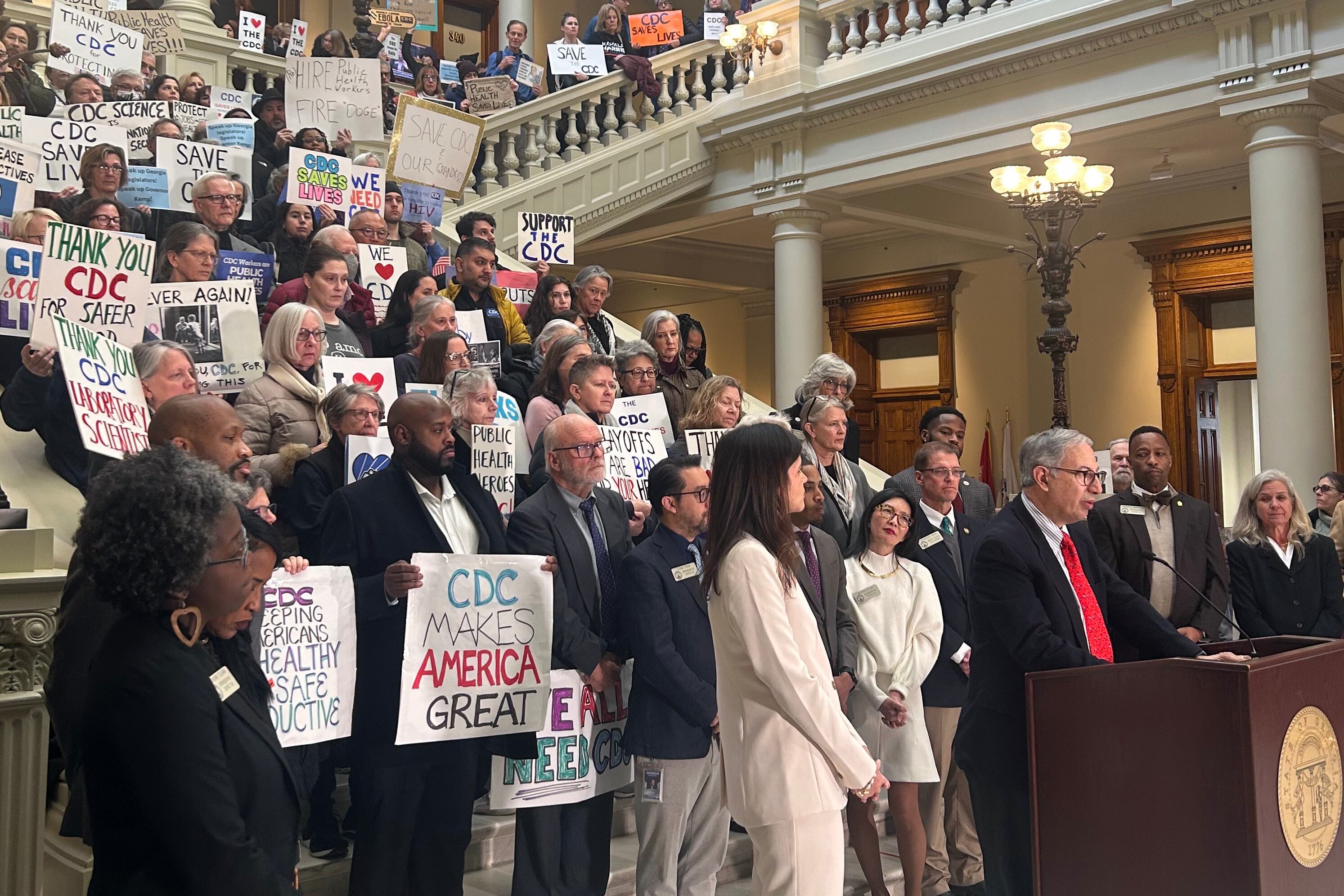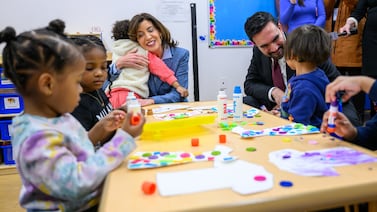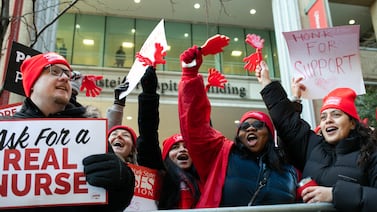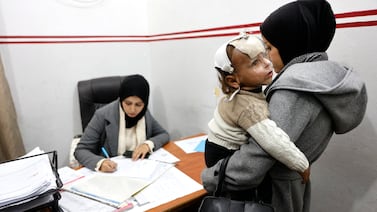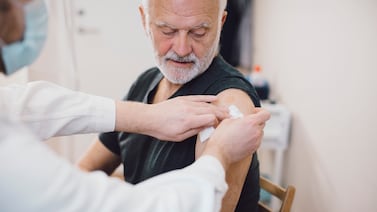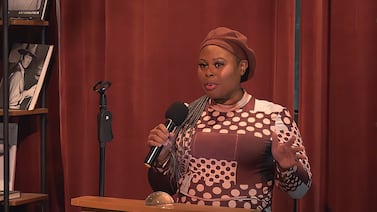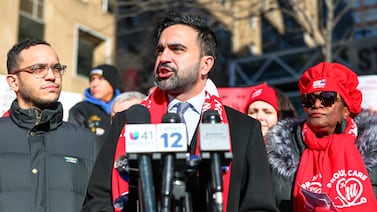Public health, explained: Sign up for Healthbeat’s newsletters here.
Happy 1st Birthday to Healthbeat!
We launched on Aug. 26, 2024, as the only newsroom committed exclusively to covering public health in America.
It was already an urgent need as Civic News Company – creator of Chalkbeat and Votebeat – laid the groundwork for this nonprofit project in the wake of the Covid-19 pandemic. Fast-forward to 2025, and the events of the past few months under the new Trump administration have only made our reporting more vital.
As health and science research is disrupted or canceled, longstanding policies on vaccines and other disease prevention are upended, global aid is cut off, and federal health funding cuts trickle down to local communities, Healthbeat is here to explain what it all means – in a nonpartisan voice, centering scientists and other experts you can trust.
Our inaugural bureaus in New York City and Atlanta have reported impactful stories that have been republished and shared locally and nationally. We’ve been privileged to meet so many people who are doing the vital work of public health – at home and abroad.
We’re working on some live events so you can meet them, too, and hear some of their stories firsthand. Stay tuned for details.
We’re expecting a momentous second year, adding new staff to meet this critical moment – and to bring Healthbeat to other cities. Should yours be one of them? Email us: expansion@civicnews.org.
In the meantime, catch up and learn from some highlights of Healthbeat’s first year of reporting. (And sign up for our newsletters so you won’t miss a thing).
Public health is local
When Rebecca Grapevine arrived at Healthbeat Atlanta, she discovered right away that the Georgia Board of Public Health had gone several months without a public meeting, even as the state was facing numerous crises: the aftermath of Hurricane Helene, a chemical fire at the BioLab chemical plant that was spewing pollution into the air, a summer Covid surge. Since our reporting on why open government is important, the board has met more regularly.
This year, we’ve been working to understand how the Trump administration’s cuts to federal health funding affect communities. New York City reporter Eliza Fawcett was among the first to detail the impact it would have there – billions of dollars in losses and disruptions to programs like Head Start.
Grapevine has exposed how HIV workers were laid off, then reinstated, in Fulton County; how Atlanta startups that depend on federal contracts are being disrupted; and layoffs at Emory University, among many other impacts.
Our rare glimpse inside the Centers for Disease Control and Prevention in Atlanta showed how scientists, researchers and other workers are coping with disruptions to important health projects, and then the aftermath of a shooting.
Public health is prevention
Our science-based guides explain how to protect against infectious diseases and environmental health threats, including:
- Ticks: Tick populations are surging in the Northeast – and so are related infections.
- Extreme heat: How to stay safe in scorching temperatures; and how Atlanta lacks enough weather stations to provide neighborhood data.
- Tuberculosis: The world’s most deadly disease is on the rise again. Here’s what to know about it in New York City and Atlanta.
- Measles: How doctors and clinics can prepare for a measles comeback decades after it was eradicated; how an Atlanta pediatrician advises parents; how Georgia officials contained an outbreak, and how to reduce your family’s risk.
- Vaccines: Why immunization is important for community health, no matter where in the world you live.
- HIV: Georgia tops states in new HIV cases. Here are 10 easy ways to get tested in Atlanta.
Public health is community
Some of the best sources for what’s going on in public health are those serving the community at the ground level. We think of them as “civic catalysts” because they are the helpers connecting their neighbors with resources to stay healthy, a bridge between people and policy, getting things done. Focusing on their work helps readers learn about challenges and solutions.
Here’s a sampling of those stories:
- People helping each other: ‘A place of empathy’: Queer mutual aid group helps New Yorkers with disabilities
- Lifeline for older adults: How a NYC center for older adults tripled membership in a year and aims to be national model
- Teen wellness: Nutrition expert vows to continue wellness club for NYC teens after USDA cut it
- Health and the arts: Atlanta theater that used arts to combat vaccine misinformation loses HHS funding
- Young caregivers: Metro Atlanta program looks to support high-schoolers responsible for caregiving at home
- Community health workers: East Point’s ‘Miss Morehouse’ works to build trust as community health worker
- Scientific research: Morehouse School of Medicine researcher aims to improve prostate cancer screening for Black men
Public health is national – and global
As epidemiologists often say, infections don’t recognize borders. In that way, and many others, local public health is tied to national and global public health. Look at how the West Texas measles outbreak spread to four other states and Mexico.
Helping other nations prevent disease keeps those infections from traveling. There are also economic and diplomatic reasons for the United States to provide global health aid, as we’ve reported, for example, on the PEPFAR program that supports AIDS relief overseas.
The Trump administration this year has gutted U.S. global health aid, dissolving the U.S. Agency for International Development. Besides endangering lives abroad, the funding cuts have resonated in places like Atlanta, which is home to nonprofits like CARE International that administer the aid, the Task Force for Global Health, and global health workers at the CDC.
Here are some other ways that global public health hits home:
- TB in Georgia: ‘Global work on a local level’: DeKalb gets new tuberculosis clinic
- Immigrant hunger: New York City food pantries work to give immigrants a taste of home. Trump’s aid cuts are making it harder.
- Maternal health: From Kenya to New York: How a global nonprofit is addressing local maternal health needs
- Foreign-trained doctors: Georgia has a doctor shortage. Barriers to training keep foreign-credentialed physicians from filling the gap.
- Dengue in California: Cases prompt swift response from public health officials
- Mpox: NYC Health Dept. urges mpox vaccination amid global emergency
What else should we be covering? Email us at community@healthbeat.org. And we’d be grateful for your feedback in the survey below. If you don’t see the form, head to this link to open it in a new window.
Thank you for reading.
Charlene Pacenti, Editor in Chief

